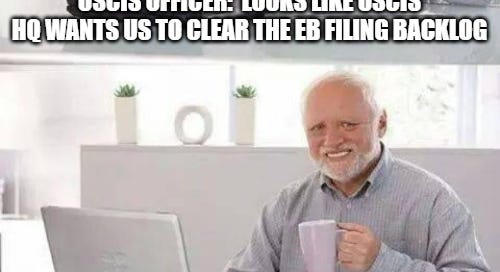EB I-485 Processing: USCIS is denying Advance Parole Applications ... again
The bizarre practice of denying I-131 applications for travel authorization if the applicant traveled began during the Trump years and ended (thankfully); but it has returned - for no good reason.
For foreign nationals in the United States, the employment-based immigration process often involves 3 stages - PERM (stage 1), I-140 (stage 2), and I-485 (stage 3).
The I-485 application can only be filed when the individual’s priority date is current. This means, somewhat notoriously, that people born in India generally have to wait many years from starting the PERM process to being able to file an I-485.
When an employment-based I-485 application is filed, it is common practice to also file an I-765 application for work authorization (resulting in an EAD - Employment Authorization Document), along with an I-131 application for travel authorization (resulting in AP - Advance Parole Travel Authorization).
For several years, the I-765 and I-131 applications were approved together, resulting in what was known as an EADAP card.
Recently, in spring 2022, USCIS de-coupled the I-765 application and I-131 application adjudication. In theory this de-coupling was done to approve the I-765 applications faster, after considerable (and well-deserved) public outcry about slow processing of I-765 applications for EAD work permits.
Now, even more recently, like this month - July 2022 - USCIS has started DENYING I-131 applications if the individual I-131 applicant traveled abroad while the I-131 was pending.
As best as I can tell, here is what has happened —
Keep reading with a 7-day free trial
Subscribe to Webber Immigration News and Analysis to keep reading this post and get 7 days of free access to the full post archives.




